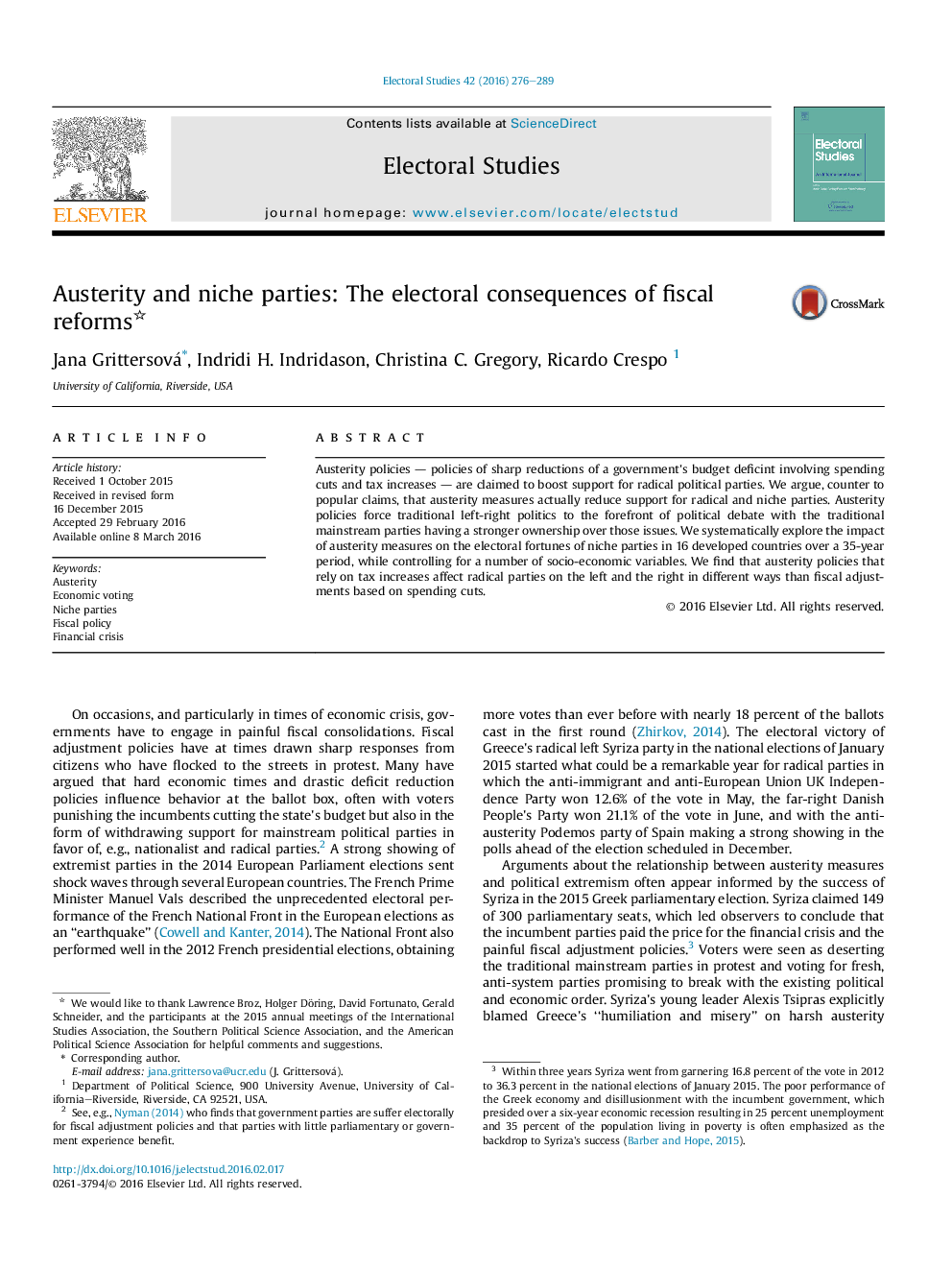| Article ID | Journal | Published Year | Pages | File Type |
|---|---|---|---|---|
| 1051692 | Electoral Studies | 2016 | 14 Pages |
•Manuscript examines effects of austerity policies on support of niche parties•Austerity policies raise the salience of traditional socio-economic cleavages•Niche parties compete against mainstream party that have greater ‘issue ownership’ of socio-economic issues•Austerity measures reduce support for niche parties, including radical parties•The effects depend on whether austerity policies involve spending cuts or tax increases and the ideological orientation of the incumbent party
Austerity policies — policies of sharp reductions of a government's budget deficint involving spending cuts and tax increases — are claimed to boost support for radical political parties. We argue, counter to popular claims, that austerity measures actually reduce support for radical and niche parties. Austerity policies force traditional left-right politics to the forefront of political debate with the traditional mainstream parties having a stronger ownership over those issues. We systematically explore the impact of austerity measures on the electoral fortunes of niche parties in 16 developed countries over a 35-year period, while controlling for a number of socio-economic variables. We find that austerity policies that rely on tax increases affect radical parties on the left and the right in different ways than fiscal adjustments based on spending cuts.
